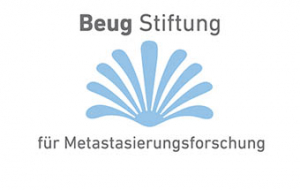Berta Sánchez-Laorden, Instituto de Neurociencias CSIC-UMH, San Juan de Alicante, Spain
Project 2019
Impact of oligodendroglia on brain metastases
Melanoma brain metastases (MBMs) associate with poor prognosis and constitute a leading cause of death from this cancer. However, information about the contribution of the brain microenvironment to melanoma metastatic colonization and response to therapies is still scarce. Glial cells constitute the majority of cells in the brain and increasing evidences suggest that oligodendroglia, the myelinating population of the central nervous system, can also act as an immune-modulator in neurodegenerative diseases. However, their contribution to brain metastasis is unknown. We pursue to decipher whether oligodendroglia contributes to MBMs progression and how it influences MBMs biology, opening novel avenues in brain metastasis research. In addition we expect to identify a list of differentially expressed genes and altered pathways in tumour-associated oligodendroglia that can be later validated functionally. Importantly our approach will allow us to elucidate whether oligodendroglia elicit neuroinflammation and could act as immune-regulators in a MBMs context with clear implications in the responses to immunotherapies.
Report 2021:
Brain metastases are associated with very poor prognosis in melanoma patients and constitute a leading cause of death from this cancer type. Effective treatments for BMs still constitute an urgent unmet clinical need. The brain is a highly specialized organ with a unique microenvironment and a deeper understanding of the mechanisms that regulate melanoma growth in the brain and of the interplay of melanoma cells with the brain microenvironment is essential to the successful development and implementation of therapeutic strategies for these patients. In addition, although the management of melanoma patients has undergone a paradigm shift with the implementation of novel immunotherapies, including CTLA-4 and PD-1 blockade, only a subset of patients with BMs respond to these treatments and it is critical to understand how these therapies work in the immune-specialized microenvironment of the brain. Thanks to The Beug Foundation Metastasis Prize we have established preclinical models to detect the presence of oligodendroglia in BMs and that allow us to trace and isolate this population in BRAF and NRAS-driven melanoma BMs to investigate their contribution to BMs growth. We are currently characterizing melanoma-associated oligodendrogia and investigating their role as immunomodulators in this context. Thanks to the preliminary results obtained in the frame of the Beug Foundation Metastasis Prize we have been awarded with a larger grant from the Melanoma Research Alliance (USA) to gain insights into this melanoma-associated glial population and to investigate whether they modulate responses to immunocheckpoint inhibitors. Our final aim is to identify novel targetable candidates that will help to design better therapeutic strategies for these patients.

